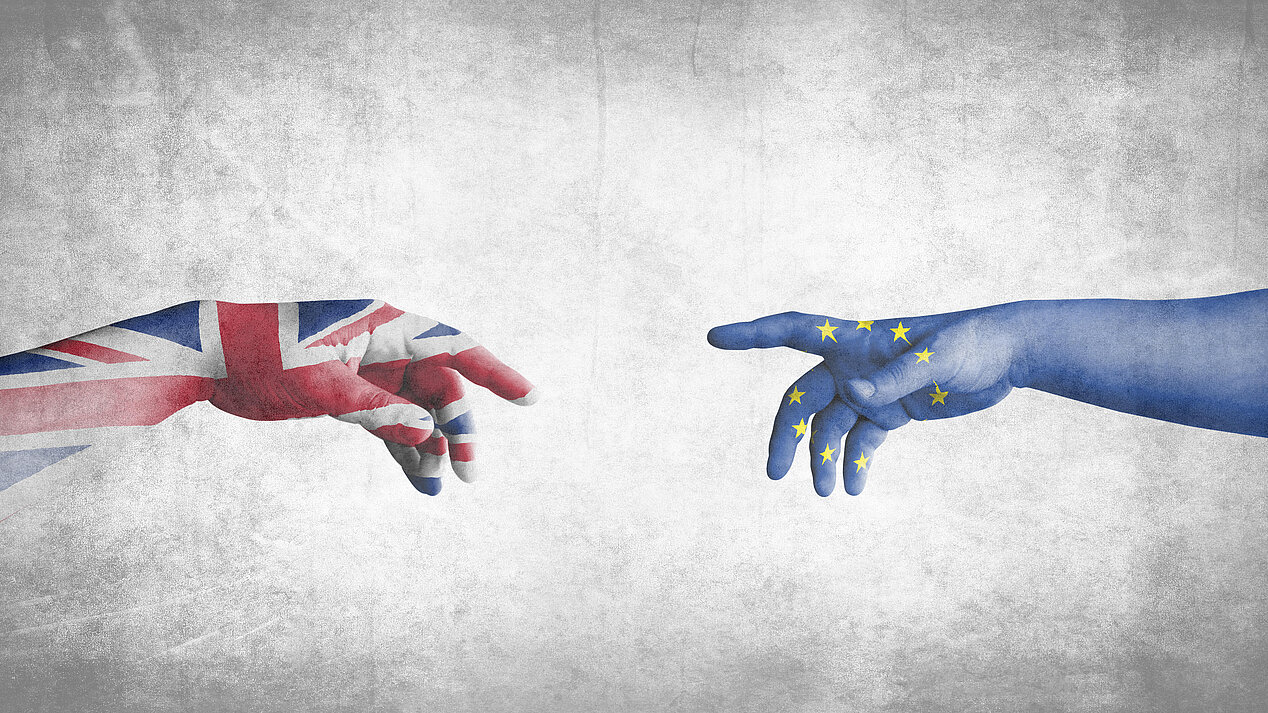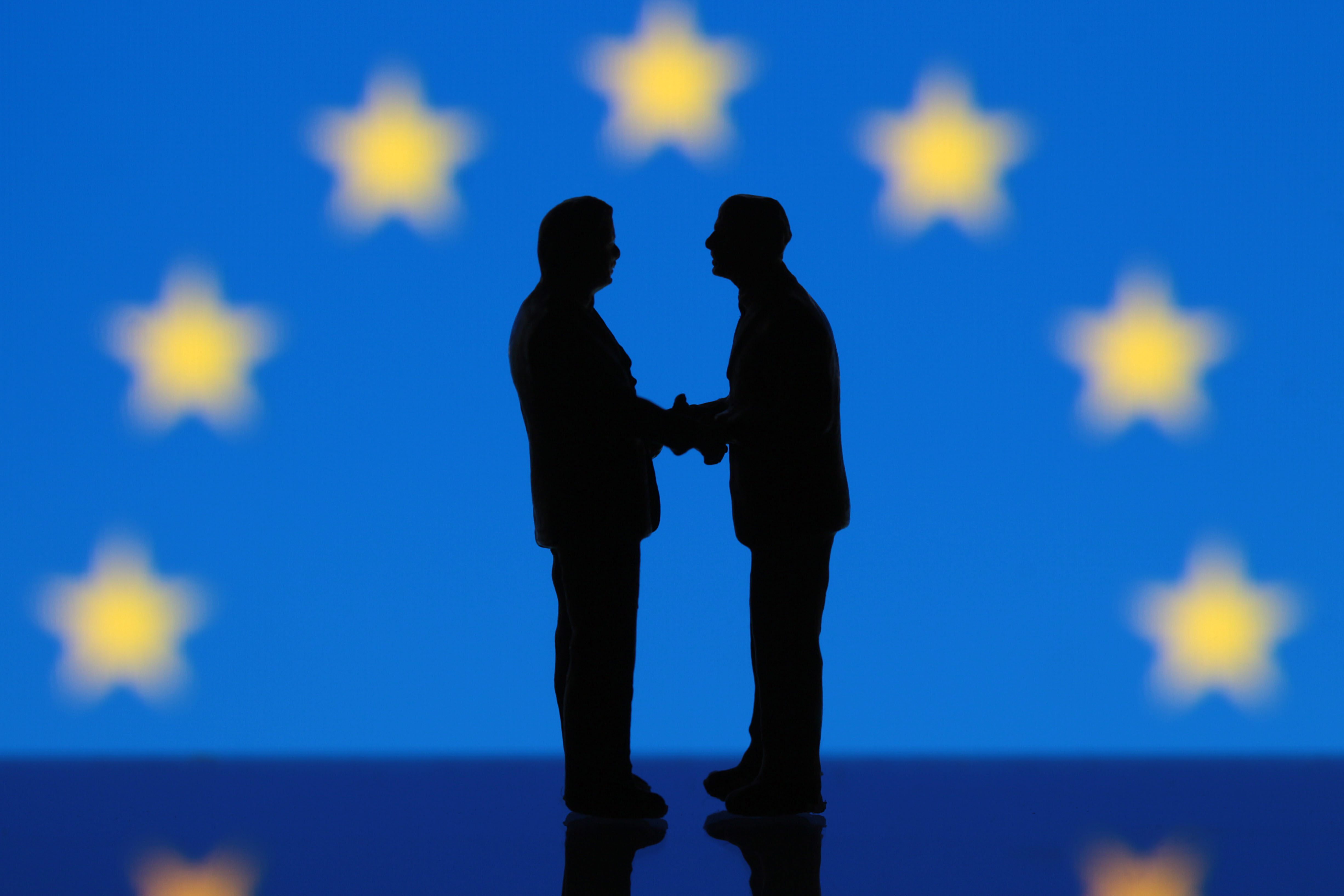
One of Emperor Charlemagne's chief intellectual advisers was an AngloSaxon, Alcuin of York. My university, Oxford, has been a European university for nine centuries. A history of Europe which did not mention all the separate and combined contributions of the English, Scots, Welsh and Irish, of Shakespeare, Adam Smith, Winston Churchill and George Orwell, would be like a symphony orchestra without a string section. (Or is it rather the brass?).
As I observed on the day after the Brexit vote, Britain can no more leave Europe than Piccadilly Circus can leave London.
Yet everyone comes to a conscious self-identification as a European by his or her own individual route. I became a passionate European through my intense, unforgettable personal experience of living in a divided Germany, witnessing the emergence of the Solidarity movement in Poland, and sharing the struggle for freedom in Warsaw, Prague, Budapest and Berlin with great central European recipients of this prize such as Václav Havel, Bronislaw Geremek and György Konrád. In those inspiring times, the causes of freedom and Europe marched together, arm in arm: freedom meant Europe, Europe meant freedom.
In fact, I have never experienced so much passionate pro-Europeanism in my life as I have in today's Britain, especially Scotland, London and among young people.
I hardly need to add that not all my compatriots identify themselves quite so happily as Europeans. Rereading Tony Blair’s acceptance speech for receiving the Charlemagne Prize in Aachen 1999, I could not resist a wry smile when I came to his central message: ‘Britain must overcome its ambivalence about Europe’.
But this ambivalence is no longer only a British speciality – the political equivalent, as it were, of fish and chips. ‘British’ Eurosceptic views, and nationalist populism, are now to be found in all corners of the continent.
Nor has the British ambivalence with the Brexit vote disappeared as if by magic. In fact, I have never experienced so much passionate pro-Europeanism in my life as I have in today's Britain, especially Scotland, London and among young people. A significant proportion of the 48% who voted for Britain to stay in the European Union are still unreconciled to the result.
It turns out that EU membership is a bit like good health: you know how much you should value it only when you are losing it. But rest assured, we British Europeans have not given up.
This leads me to an important question about the individual and the collective. The idea of a formal, legal kind of individual EU citizenship for post-Brexit British Europeans is surely unrealistic, but a political community that defines its members only by virtue of their belonging to a member state, and which, even in its intellectual and political debates, is constantly asking after your passport, is missing something. If we are to deepen our European sense of community, we must learn to see each other, to recognise each other, as individual Europeans.
Politics and history have different clocks. A British prime minister once memorably observed that ‘a week in politics is a long time’. History's clock, by contrast, is marked in centuries. Now one way of reading European history across the centuries is as a constant oscillation between periods of European order, however hegemonic and unjust those orders might be, and periods of usually violent disorder. In this perspective, our age is quite exceptional.
For over 70 years since the end of the Second World War we have not seen a major interstate war in Europe. I can find no comparable 70-year period in the last ten centuries. It is important to say at once that there have been very terrible wars in Europe since 1945, from the Greek civil war through the bloody wars in former Yugoslavia, all the way to the low-level armed conflict still being stirred by Vladimir Putin in Ukraine. But there have been no major wars.
That is the more remarkable because this period includes a tectonic shift from one order to another: the end of the Soviet empire and the cold war in the years 1989 to 1991. In the past, such a tectonic shift would have been accompanied by war.
Never before have so many European countries been liberal democracies, most of them gathered together in the same political, economic and security communities. To adapt Winston Churchill's famous remark about democracy: this is the worst possible Europe, apart from all the other Europes that have been tried from time to time.
Yet the historian may look at this 72-year span and say: ‘well, you're overdue for a big crisis.’ And sure enough, the many crises exercising different parts of Europe combine to form an existential crisis of the whole European project as it has developed since 1945.
Here the historian and the politician, indeed intellectuals and politicians more broadly, have necessarily different roles. My job can be stated very simply: it is to seek the truth, to find the truth, insofar as critically tested evidence and rational argument allow, and then to state that truth as carefully, plainly and vividly as possible.
So I'm doing my job if I try to identify the causes of this existential crisis and point to the vulnerabilities that nationalist populists exploit. For example: a directly elected European Parliament actually exercises considerable democratic control over European laws and policies, but most Europeans don't feel that they are directly represented and their voice heard in Brussels.
Many European societies have great difficulty accepting the scale and speed of immigration, not least that facilitated by dismantling the internal frontiers in Europe while not adequately securing the external borders of the Schengen area.
And I trust the Charlemagne Prize winner for 2002 – the euro – will not feel personally offended if I note that the Eurozone, intended to advance European unity, has in recent years fostered painful divisions between northern and southern Europe. These are perhaps uncomfortable truths, but I think the ghost of Alcuin of York would agree that it is the scholar's job to speak them.
The politician, by contrast, has always to start from where we are, always to watch his or her words, and to convey a sense of ‘yes, we can’ – roughly translatable into German as ‘wir schaffen das’. The intellectual must spell out the truth that no empire, commonwealth, alliance or community on earth has ever lasted forever, so this one won't either.
The politician must work to ensure that our unprecedented, voluntary, peaceful European empire-by-consent will last as long as humanly possible.
Culture has a strategic role to play in the process of European unification. What about cultural relations within Europe? How can cultural policy contribute to a European identity? In the Culture Report Progress Europe, international authors seek answers to these questions. Since 2021, the Culture Report is published exclusively online.
